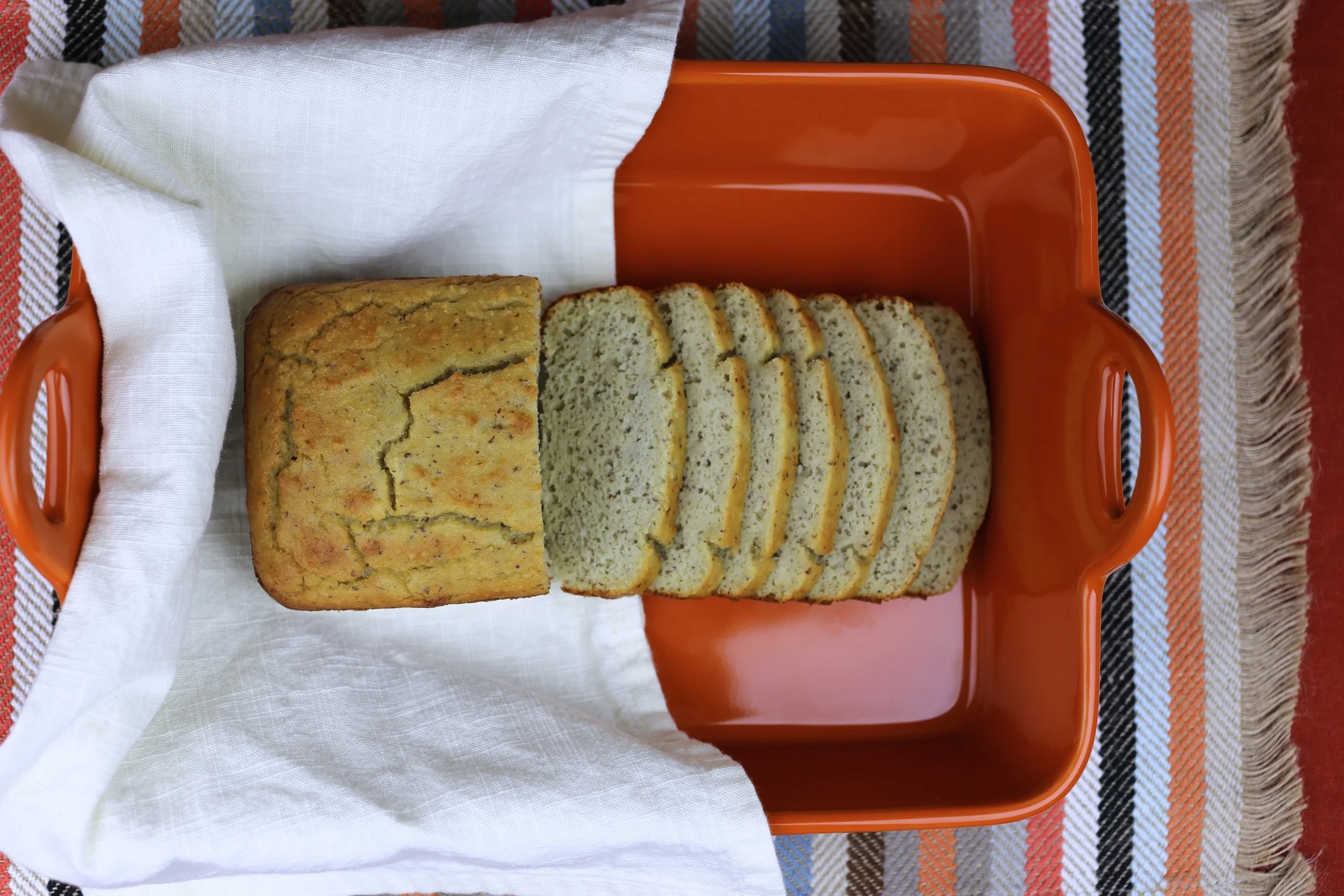What should I know about grains?
Unlike some other grain-free bloggers, I don’t think [healthy] grains are the villain they’re often made out to be. I do however think that most of our lives are already so grain-full, that I’d like to offer recipes that don’t depend on them at all. I also want this to be a Celiac/gluten-sensitive friendly resource, because I recognize the need.
If you can tolerate them (big “if,” as many of the population either have celiac disease or a sensitivity to wheat/gluten [1]), I think high quality grains in careful moderation are just fine. This means non-GMO, organic grains in modest quantities. And all the better if they're sprouted.
The snag? Most grain-based foods don’t fall into the “high quality” camp, and they're eaten with abandon. They’re easy, inexpensive, tasty, and filling. Comprising most breads, cereals, pastas, crackers, they make up the bulk of the average American diet. In 2014 I started learning more about this dietary staple, and I saw the necessity of cutting the majority of them from my and Thad’s diet (after doing so, it became clear that Thad has a sensitivity to gluten, so we’re now a gluten-free/mostly grain-free home).
Why limit grains to small quantities?
Grains contain:
- Lectin - a type of protein which appears to cause leptin resistance (2) and irritate the gastrointestinal tract (3).
Leptin is a protein that “functions as a feedback mechanism that signals to key regulatory centres in the brain to inhibit food intake and to regulate body weight and energy homeostasis.”(4) In other words, it plays an important role in recognizing when you’ve had enough to eat and weight management. Leptin resistance therefore refers to a state wherein the body stops responding to the “I’m full, stop eating” signals.
- Phytates - an antioxidant compound that can bind to minerals such as iron, zinc, and magnesium, preventing them from being absorbed by your body (5).
However, phytates have some upsides too, such as anti-inflammatory properties. And as Dr. Weil states “Phytates in your everyday meals should not be an issue for you as long as you're eating a balanced diet.” The concern is that grains easily overwhelm the average diet, making them unbalanced. Thus the need for moderation.
For an unbiased look, check out this article: Are Phytates Good or Bad?
- Gluten - a combination of proteins found in wheat, rye, barley and spelt. It’s a problem for those with celiac disease or gluten sensitivity. I know some who argue that no one should ingest it, tolerant or not. But based on what I’ve read, I haven’t found a solid basis for that claim.
The one concern that does make sense to me, for those who believe themselves to be gluten-tolerant, is that they actually may not be and just don’t know it. Celiac disease can be asymptomatic or show up in unexpected ways, such as irritability, fatigue, or depression. If you have any questions or concerns, the only way to know for sure is having your doc test you for it.
Symptomatic celiac disease may show up as (6):
- diarrhea
- constipation
- abdominal pain
- weight loss
- fatigue
- rash/hives
Here’s an excellent article for those interested in learning more about asymptomatic or unconventionally symptomatic celiac disease: Non-Classic Manifestations of Celiac Disease
